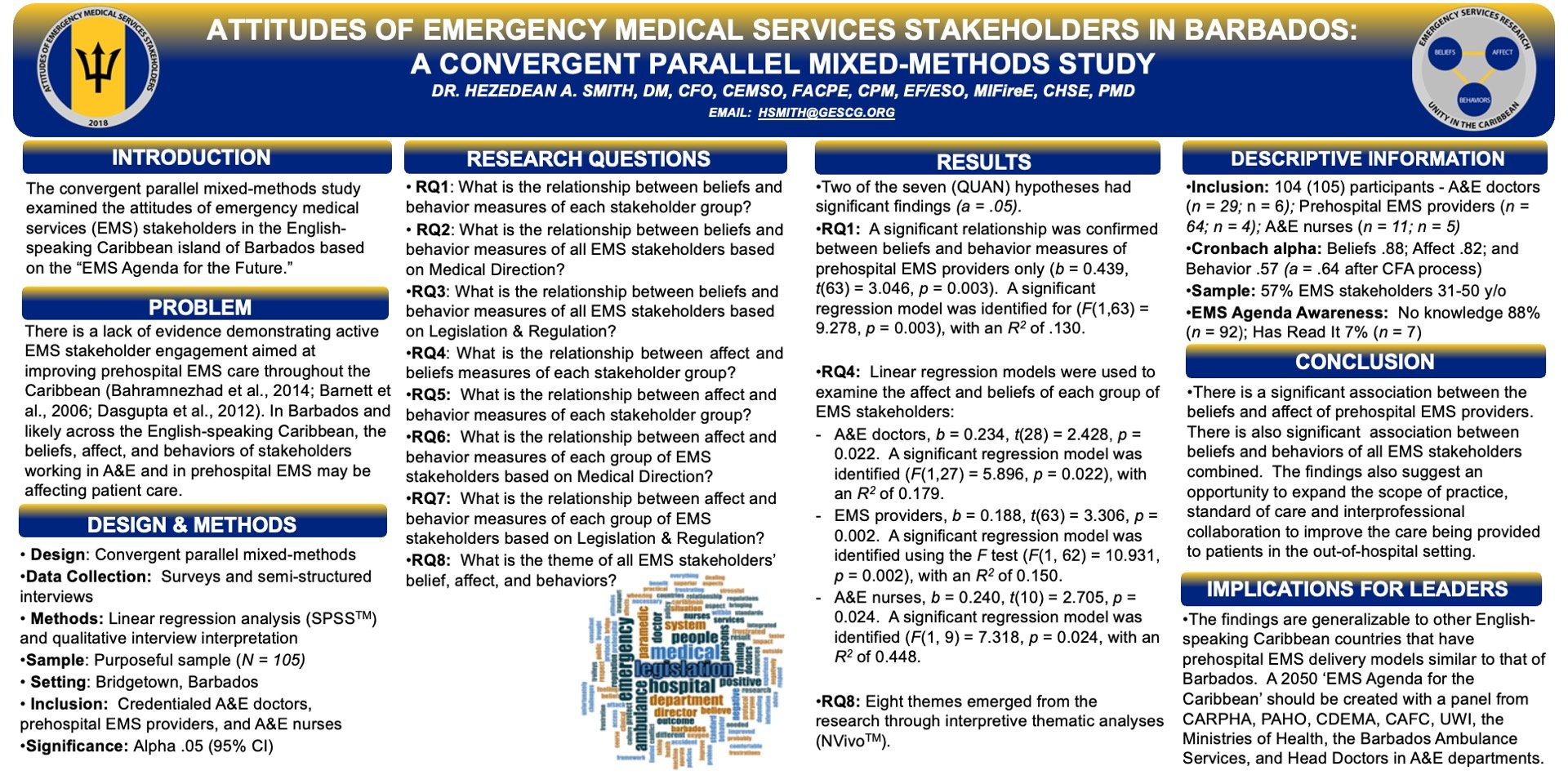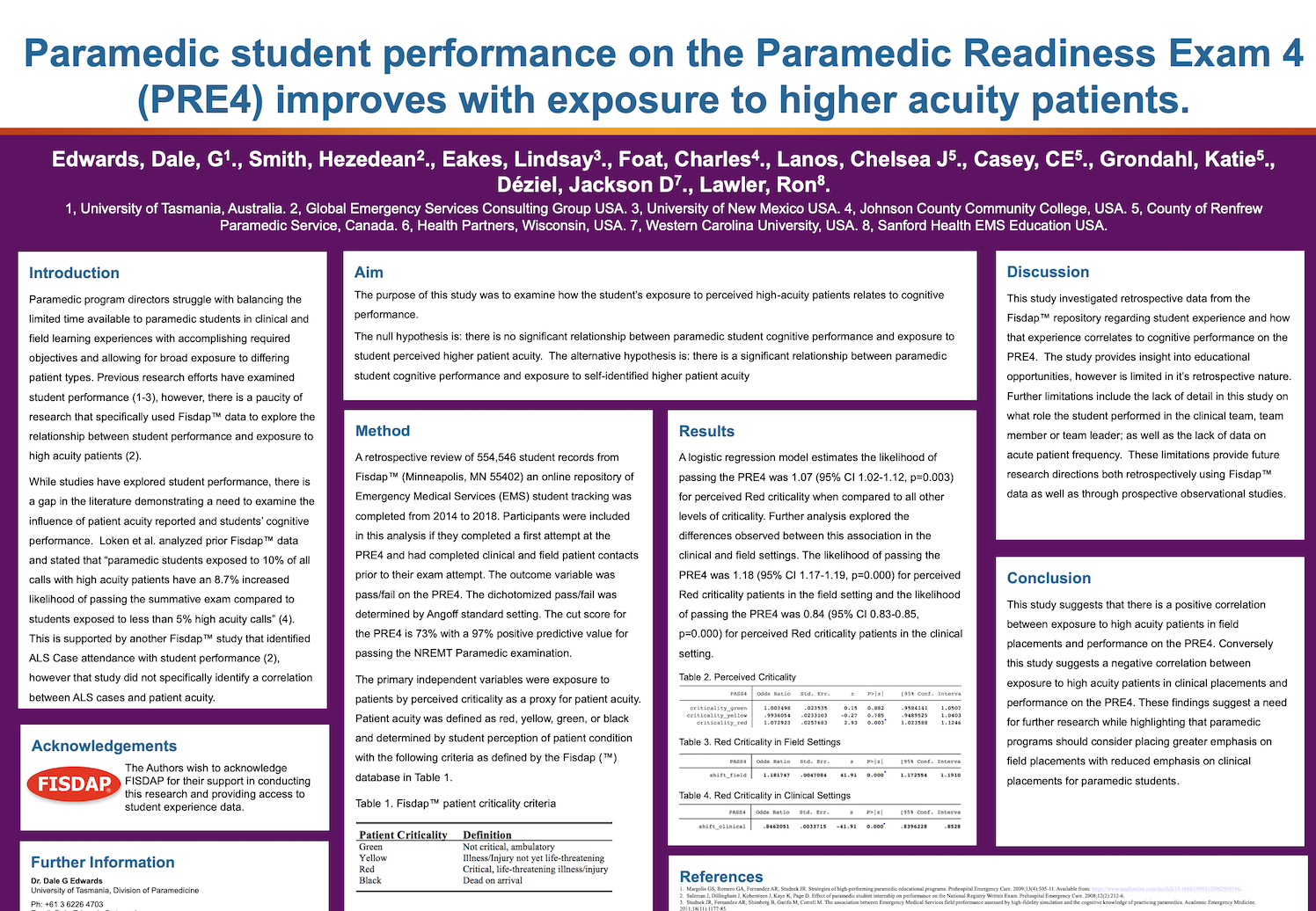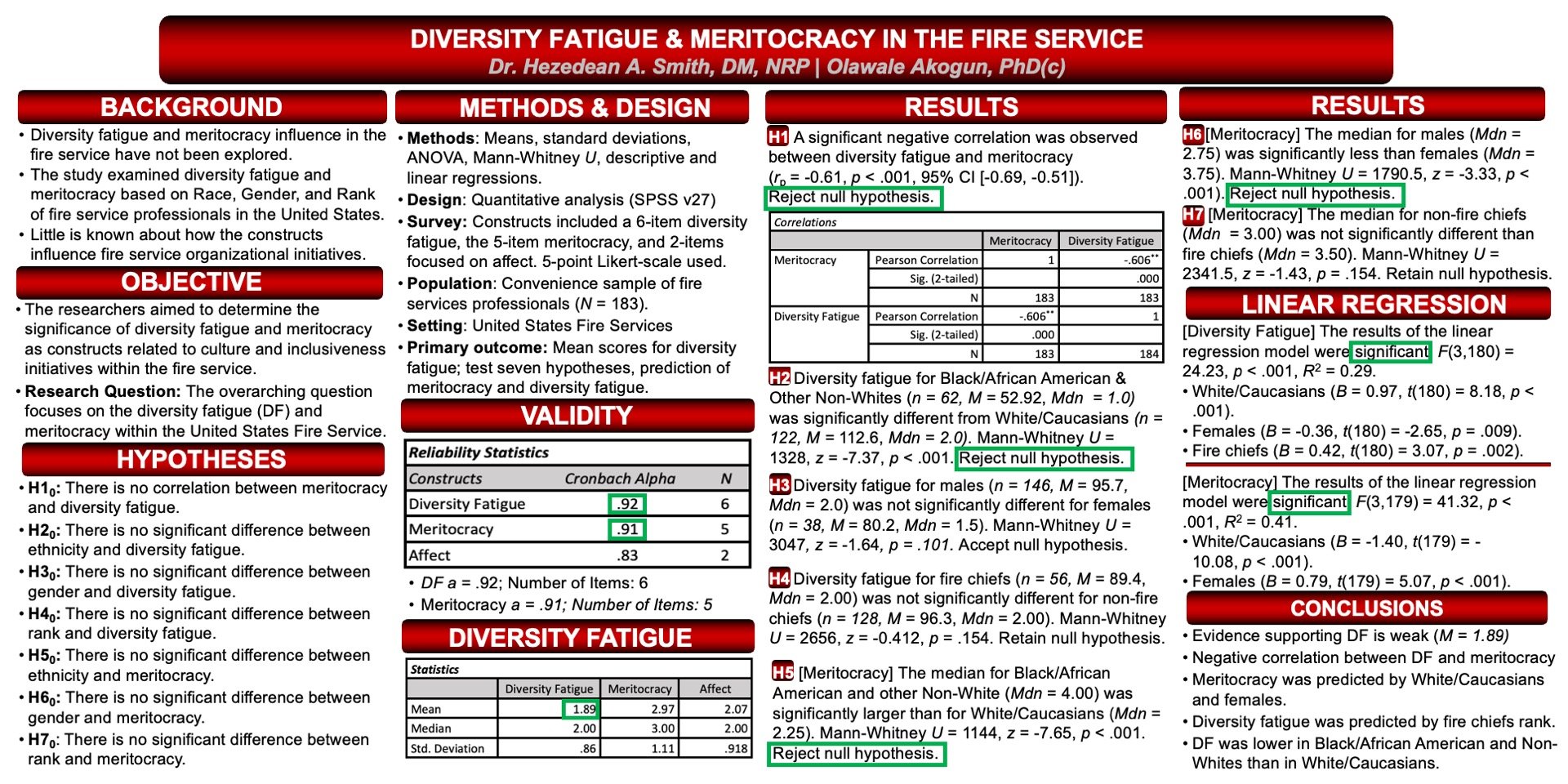
Attitudes of EMS Stakeholders in Barbados
Location: Bridgetown, Barbados
A comprehensive convergent parallel mixed-methods study was conducted to thoroughly examine the various attitudes of emergency medical services (EMS) stakeholders in the English-speaking Caribbean island of Barbados, specifically in reference to the influential framework outlined in the “EMS Agenda for the Future.” This research aimed to gather diverse perspectives and insights from key stakeholders in order to better understand the current state and future needs of EMS in the region.
Lead Researcher:
“Without thoroughly validating competencies through a variety of assessments, research, and other effective methods, organizations cannot significantly improve the quality of the services they provide to both the citizens and the visitors within their communities“ Dr. Hezedean Smith
Stakeholder Perspectives
A comprehensive presentation that meticulously examined data from the unique perspective of Fire and Emergency Medical Services (EMS) Responders was hosted by the National Alliance for Public Safety GIS (NAPSG) Foundation. This event aimed to highlight critical insights and enhance understanding of the challenges faced by these vital emergency responders.
Mission Critical Decision-Making
“ Without thoroughly validating competencies through a variety of assessments, research, and other effective methods, organizations cannot significantly improve the quality of the services they provide to both the citizens and the visitors within their communities. ”
— Global Emergency Services Consulting Group, LLC
Attitudes of EMS Stakeholders in Barbados
Location: Bridgetown, Barbados
A comprehensive convergent parallel mixed-methods study was conducted to thoroughly examine the various attitudes of emergency medical services (EMS) stakeholders in the English-speaking Caribbean island of Barbados, specifically in reference to the influential framework outlined in the “EMS Agenda for the Future.” This research aimed to gather diverse perspectives and insights from key stakeholders in order to better understand the current state and future needs of EMS in the region.
Lead Researcher:
Stakeholder Perspectives
Student Performance on PRE4
Location: UCLA Prehospital Research Foundation
Paramedic program directors face the challenging task of balancing the limited time available to paramedic students during their clinical rotations and field learning experiences with the pressing need to accomplish required educational objectives. This challenge is further complicated by the necessity of providing students with a broad exposure to a diverse array of patient types and clinical scenarios.
Researchers:
Predicting Response to Naloxone in Patients
Location: University of Phoenix
The adoption of end-tidal CO₂ (etCO₂) monitoring and the frequency of its use in prehospital settings continues to steadily increase. As the ongoing crisis involving heroin and other narcotics significantly impacts patient care, EMS systems must update protocols regularly. This includes the integration of etCO₂ values as a critical marker in the evaluation of opioid overdose patients and the response to Narcan administration.
Researchers:
Clinical Research Highlights
Influences on Diversity Fatigue & Meritocracy
Location: Fire Service Executive Development Institute (Cohort)
The comprehensive study specifically examined in detail how various factors, such as race, gender, and rank, significantly influence this complex relationship. The substantial findings of this thorough research yielded valuable insights that can effectively guide development strategies aimed at cultivating a greater sense of inclusivity across different environments and organizations.






